Inmate's groin injected in botched Oklahoma execution
- Published
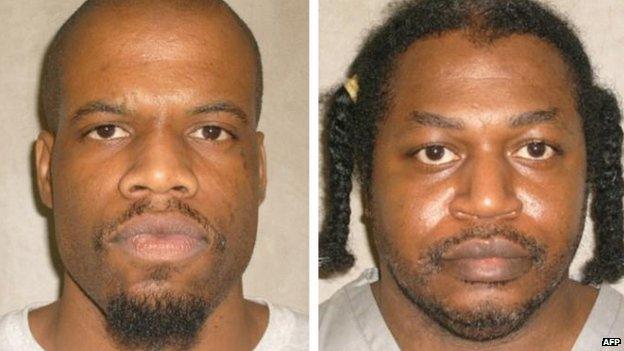
Lockett (L) and Warner (R) were due to be put to death in the same room, just two hours apart
Prison officials in Oklahoma inserted lethal drugs into an inmate's groin after failing to find a vein elsewhere during an execution that went wrong.
They took 51 minutes to find a suitable vein and did not realise the one they chose in his groin had collapsed.
Clayton Lockett succumbed to a heart attack 10 minutes after his execution was stopped, as he writhed and mumbled.
The corrections department disclosed new details of his last moments in a letter to the state governor.
It shows that Lockett fought with guards attempting to remove him from his cell on the morning of his execution.
He was subsequently shocked with a stun gun and taken to a prison infirmary, where a cut said to be self-inflicted was treated.
The intravenous line was placed in Lockett's groin and covered with a sheet, according to prisons director Robert Patton's letter to Oklahoma Governor Mary Fallin, which included a detailed timeline.
It became dislodged and was not discovered until 21 minutes after the execution began and all the lethal drugs had been administered.
"The drugs had either absorbed into tissue, leaked out or both," Mr Patton wrote.
"The director asked the following question, 'Have enough drugs been administered to cause death?' The doctor responded, 'No.'"
The doctor detected a faint heartbeat and Mr Patton halted the execution but it was too late to save Lockett's life.

Oklahoma Governor Mary Fallin (left) has called for a review into the execution of inmate Clayton Lockett
Another inmate initially scheduled for execution the same day as Lockett was granted a stay as the state continues to investigate the matter.
Charles Warner's execution was initially rescheduled for 13 May, but Ms Fallin said on Thursday she was open to issuing a 60-day stay if need be.
"If it does require more time, then yes, I think they should take more time," she told US media. "We need to get it right."
Ms Fallin also ordered an "independent review" of the state's execution protocols, saying the state's department of public safety would lead the inquiry.
Her call for a review was echoed by Mr Patton in his letter.
Lockett was sentenced to death for shooting 19-year-old Stephanie Neiman and watching as two accomplices buried her alive in 1999.
Ms Neiman and a friend had interrupted the men as they robbed a home.
The problems surrounding Lockett's execution come amid a wider debate over the legality of the three-drug method and whether its use violates guarantees in the US constitution "against cruel and unusual punishment".
US states have encountered increasing problems in obtaining the drugs for lethal injections, amid an embargo by European pharmaceutical firms.
- Published30 April 2014
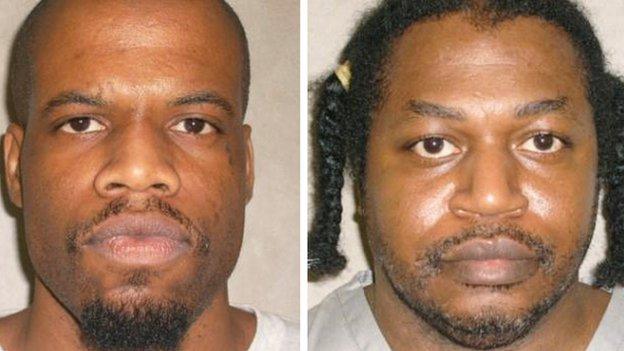
- Published22 April 2014
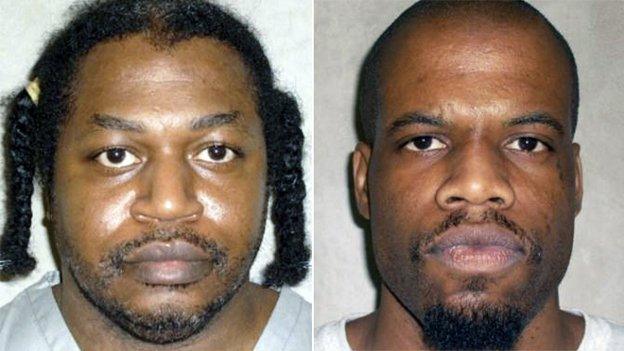
- Published15 November 2013
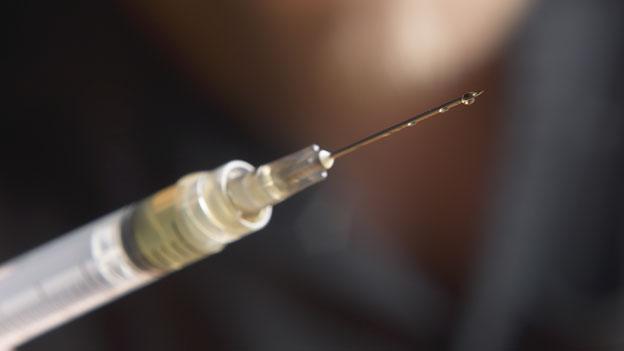
- Published8 August 2012
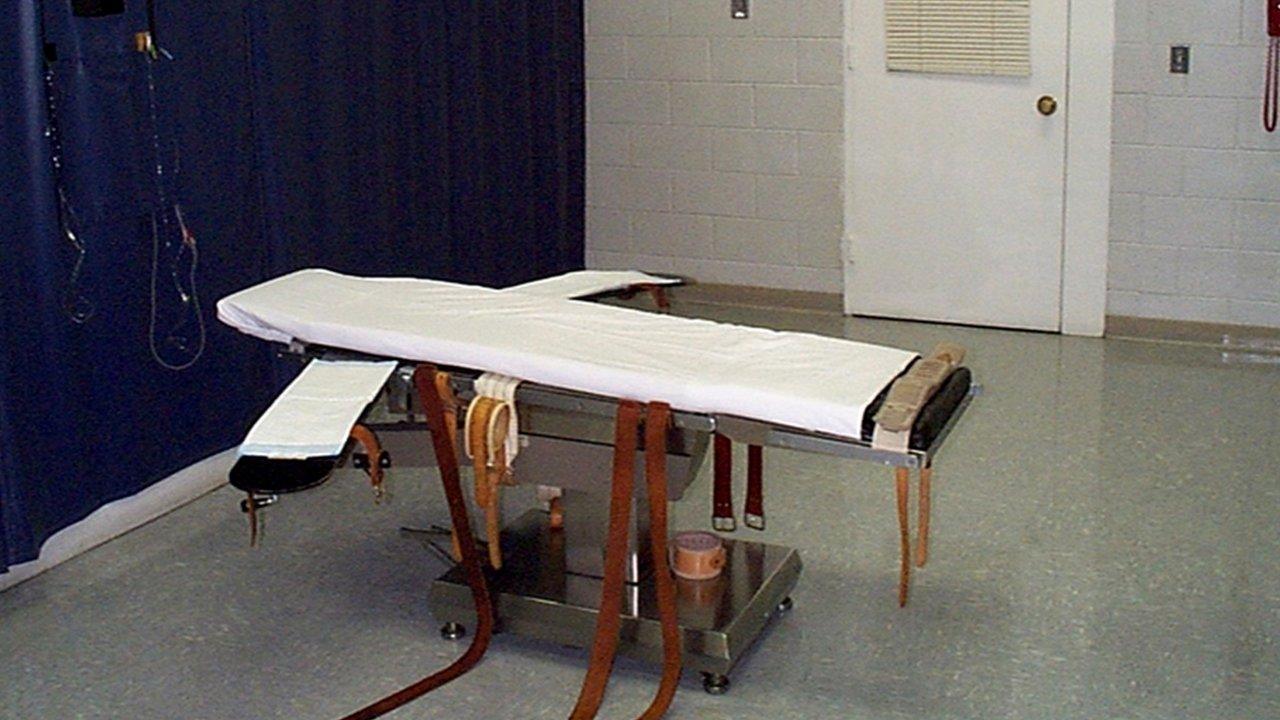
- Published28 April 2014
